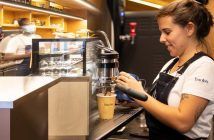Data were released by Abrasel, the Brazilian Association of Bars and Restaurants
About 12 thousand bars and restaurants and snack bars have closed their doors since March 2020 in the city of São Paulo. The main cause pointed out is the functional restrictions imposed by the coronavirus pandemic.
Across the state, of the 250,000 companies in the sector, 50,000 ceased to exist during the pandemic. Of the 1.8 million employees in the state branch, 400 thousand lost their jobs in the same period.
For many of these establishments, delivery helped to keep the establishments functioning, even if the doors were closed. Between March and December 2020, the number of new restaurants registered with iFood, for example, grew 78% in the state. The app saw a growth of 122% in small and medium registered restaurants.
On the last 24, Saturday, the State Government authorized the reopening of bars and restaurants. However, according to Abrasel, 20% of these establishments will not return their activities because the operating costs are not worth it. The association estimates that revenue should not reach 25% of what used to be made before the pandemic.
For Fábio Pereira, one of the partners at Urbe Café (read the story here), the situation is quite difficult. “One can’t really fend for himself or herself. What we have been doing is to push the problem forward. We are trying to stretch the rope to see some light at some point. To be very practical, we are making debts with financial institutions. We borrowed all the loans we could. We are trying to get others, but everything has a limit,” he explains.
Fábio thinks that the limit of most entrepreneurs in the area is coming to an end. “The next two months, May and June, will be decisive. It is impossible to guarantee the maintenance of all jobs, without assistance from the Federal Government. Last year, with the help, we managed to survive. But, if we do not have other aids, it will be impossible not to dismiss,” he says.
Fábio explains that Urbe’s revenue fell 80% in the last year. “Delivery helps a little, of course, but it is not the solution. The authorities urgently need to take a stand. It makes no sense to tell us to close the doors and, the next day, water, electricity, gas utilities, are charged from us. We need time to organize and pay fixed expenses. We need real deadlines. Otherwise, many more coffee shops, bars and restaurants will close their doors for good,” he vents.



